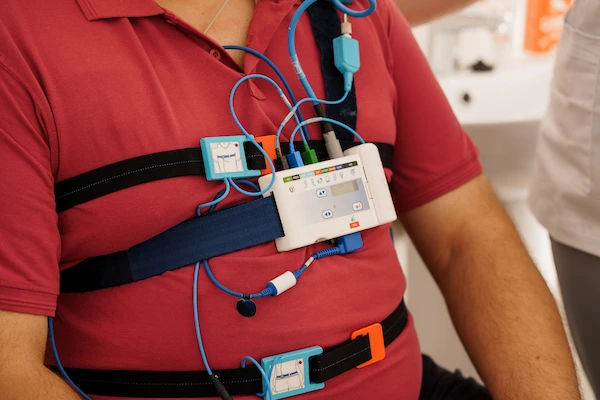- Male
- 28 Years
- 29/01/2025
I've been dealing with this left side chest pain for more than a year now and it's really worrying me. I've seen a couple of doctors and even a psychiatrist, and they all say my heart is fine. I've had a full body checkup, and apart from low vitamin D and some past hyperthyroid issues, everything looks normal. My thyroid levels are okay now, and the antibody tests came back fine. They say I have panic attack anxiety and hypochondriasis. I mean, all my tests like ECGs, TMT, chest X-ray, ultrasound, and endoscopy are normal, and even my cholesterol levels are fine. Still, I can't shake off this weird feeling, like I'm scared of having a heart attack because of the chest pain. I can run long distances without any problems. Oh, and I should mention that I smoke 2 to 3 cigarettes a day, and I used to drink heavily, but I've quit that. I'm just trying to figure out if this is just anxiety playing tricks on me or if there's something actually wrong with my heart. Any advice?
Answered by 1 Apollo Doctors
It sounds like you have been thoroughly evaluated for your left side chest pain and all the tests have come back normal, indicating that there is nothing wrong with your heart. Given your history of panic attacks, anxiety, and hypochondriasis, along with the normal cardiac tests, it is likely that your symptoms are related to anxiety rather than a cardiac issue. To help manage your anxiety and chest pain symptoms, you can consider taking an anxiolytic medication such as lorazepam (Ativan) as needed for acute episodes of anxiety. Additionally, you may benefit from a selective serotonin reuptake inhibitor (SSRI) such as sertraline (Zoloft) or escitalopram (Lexapro) for long-term management of anxiety. It is important to continue practicing healthy habits such as quitting smoking completely, maintaining a balanced diet, exercising regularly, and managing stress through relaxation techniques or therapy. If you continue to experience chest pain or anxiety symptoms, it would be advisable to follow up with a mental health professional for further evaluation and management. Remember, it is essential to prioritize your mental health and well-being in addition to physical health.
Dr. Anshul Suggests...
Consult a Cardiologist
Answered 04/07/2025
0
0

More Cardiology Health Queries
View allI'm feeling really stressed because I couldn't sleep last night and today I found out my blood pressure is 150100. I'm currently taking Metosortan 50 every day, and it usually keeps my BP in check. Can you recommend something to lower my blood pressure and help me get a good night's sleep?
It seems like you are experiencing elevated blood pressure and difficulty sleeping. To help lower your blood pressure and improve your sleep, I recommend adding a medication like Amlodipine 5mg to further control your blood pressure. Additionally, you can consider taking a medication like Zolpidem 5mg to help with your sleep. However, please consult your healthcare provider before starting any new medication to ensure it is safe and appropriate for you.
Answered by 1 Apollo Doctors
I've been dealing with high blood pressure for about 20 years now, and despite taking medications like atorvastatin, aspirin, hydralazine, and amlodipine, it doesn't seem to be improving. I'm really worried and wondering if there's anything else I should be doing or trying. Any advice?
Homeopathy Potency: 3X vs. 30C _3X and 30C are not the same:_ 1. _3X_: Represents a 3-times dilution of the original substance, with a relatively lower potency. 2. _30C_: Represents a 30-times centesimal dilution (1:100^30), with a significantly higher potency. _Substitution not recommended:_ 1. _Consult your homeopath_: Before making any changes, consult with your prescribing homeopath to ensure the correct potency and treatment plan. 2. _Potential differences in efficacy_: Using a different potency may affect the treatment's efficacy or cause unforeseen interactions. _To ensure safety and efficacy:_ 1. _Follow the prescription_: Adhere to the original prescription and recommended potency. 2. _Consult before making changes_: Discuss any concerns or questions with your homeopath before modifying your treatment plan.
Answered by 1 Apollo Doctors
I'm really worried about my mom. She has been experiencing chest pain and some trouble with her breathing while walking. I know she has diabetes and issues with blood pressure too. Could these problems be connected to her existing health conditions, or is this something more serious? What should we do next?
Advised ecg and echo..
Answered by 1 Apollo Doctors
Disclaimer: Answers on Apollo 247 are not intended to replace your doctor advice. Always seek help of a professional doctor in case of an medical emergency or ailment.




_0.webp)